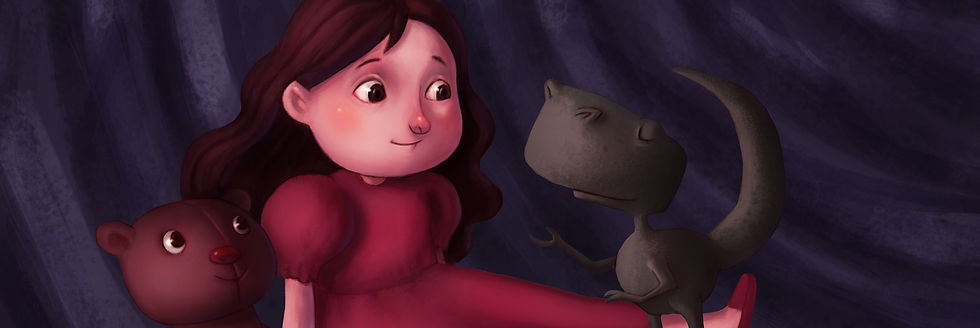You aren't doing grief 'wrong'
- Gary Bunker

- Aug 15, 2022
- 7 min read
Updated: Aug 23, 2022

Grief is many things, and also wears many faces - but two truisms exist; Grief is universal, we all experience it - and grief is hard.
It can be quite common when speaking to people who are experiencing grief to hear them talk about themselves as if they are somehow failing, by not processing their grief or moving through it the way they think they should. That is a terrible burden to put on themselves, since they now not only have to carry the weight of their loss and grief, but they also feel they are somehow less able than others to cope.
One of the contributing factors to this can be the often misunderstood stages of grief; you have probably heard of these before, and it goes something like this - your grief should proceed through certain stages. These are usually couched in very certain terms ("everyone who experiences grief will go through these stages") and are described variously with 5 or 7 stages:
Shock and denial
Pain and guilt
Anger and bargaining
Depression and loneliness
Turning upward/beginning to recover
Reconstructing of life
Acceptance
Or:
Denial
Anger
Bargaining
Depression
Acceptance
It's helpful to understand where this came from. The initial 5-stage model was developed by the US psychologist Elisabeth Kübler-Ross, to help describe the process that terminally ill patients go through in coming to terms with their deaths. Since humans like rules and simple solutions, this was first taken as being a 'hard and fast rule' re the stages, and then later taken to apply not just to terminally ill patients regarding their own mortality, but also extended to encompass anyone dealing with bereavement and loss.
Most interestingly, Kübler-Ross herself went on to later state that the stages are not linear and do not progress in the way they are listed, above - and that she regretted the misunderstanding of how they were taken up by others.
Whilst some of us might process grief in a linear fashion passing through all of those stages in a nice neat journey, it's far more common for people to experience something else; we might skip several stages, or progress only to revert back again. We may experience all five stages in a single day - or none of them. It can be far more helpful to think of these stages as possible internal weather that may, or may not, arrive. We may experience two or three in a day, or rain may set in for months before the sunshine breaks through - there is no single pattern that is right, whatever we experience is okay.
When my father passed I fell straight into depression, regretting our lost opportunities. I briefly bargained with the universe to provide me with respite, but my journey was stage 4, 3, 4 (and 4 for a while!) before 5 finally arrived. Not even close to linear and logical. When my father-in-law passed away, it was a completely different journey.
There is a much more helpful way to look at grief, captured by William Worden in his book on grief counselling. There are, simply, 4 tasks that we all need to work through, for grief:
Accept the reality of the loss
Process the pain of grief
Adjust to a world without the person
Find an enduring connection with them, whilst embarking on a new life
And just as with the stages above it's important to see these as tasks we all need to approach; that doesn't mean we have to undertake them in any particular order, it doesn't mean we can't undertake two or more at once. They are simply what lies on the road to helping us feel better. And it's important to remember there is no timeline. Grief takes the time it takes.
Accept the reality of the loss
It's pretty common for us to find this hard, especially early on. It can feel unreal, like a veil has been drawn over the world and everything is out of balance or wrong. We can feel like we're in a dream and if we only knew the way to wake up, our loved one would still be there waiting for us.
We might dream of that person, see them or hear them, feel them close to us like they just slipped out of the room before we walked in. It might feel that we can still call on them or visit them, somehow (which we can, in a way).
These are natural responses.
We've gone through a huge change in life, a painful one. Being able to accept the reality of that change helps us with our other tasks.
There is a saying, "Pain is inevitable. Suffering is optional." As unfair as it seems, death is a part of life; and whilst this change is painful (and inevitable), we only increase our suffering when we try not to accept the change has occurred.
Process the pain of grief
Whilst that pain is indeed inevitable, that does not in any way diminish how hard it can be to cope with. People coping with grief talk of having their heart ripped out, being turned inside out, having their souls crushed - horrendously painful descriptions that probably still don't come close to capturing the level of pain we can feel.
Unfortunately, there are no simple ways to process that pain. There are things we can do to help give us the best chance to deal with it, to help us keep moving and getting out of bed each day, and a million pieces of self-help and support to assist. These can all help, as can grief counselling, to help work through this with someone else. There are also support services such as Griefline, which can help in times when that pain becomes unbearable, or you simply need to share it with someone.
It's important to firstly face, and accept this pain. It is normal, it is understandable, and it's a part of you. Acceptance and Commitment Therapy (ACT) provides a great pathway here, helping us to accept the pain, to face it without judgment and without increasing our suffering. Finding a way to help you cope that is not destructive is going to be important.
Adjust to a world without the person
Sometimes this can be much harder, especially if the person we are mourning played a huge part in our life. It can be a huge adjustment, especially if that person formed part, or even all, of our support network. I spoke with someone recently who had lost their partner who did literally everything for them; they found they had no idea how to cook, clean, pay the bills, live their life. This person had to adjust to an entirely new world, and it felt overwhelming.
One of the most important activities here is to lean on the supports that are available to you. Depending on your circumstances there may be support available from close family and friends, from support groups or community groups and from religious organisations. There are various free support options available from organisations such as Griefline and others, and paid options available across a wide range of areas.
But it doesn't always feel that way.
Often people struggle to know how to cope with grief; they can be so scared of knowing what to say that they say nothing. Or they don't know how to support you, so they simply stay away and wait for you to let them know.
That doesn't mean they don't care - and it doesn't mean they don't want to help. It does mean that you sometimes need to be proactive in finding your way to adjusting to your new world. Sometimes you need to let people know what you need, and push them to provide it.
That can be especially hard when all you want to do is stay in bed and avoid the world - but sooner or later you need to adjust to the new world and continue living in it. Making the most of the supports available to you will help with that.
Find an enduring connection
Just because they are gone, it doesn't mean your relationship with them has to end.
As painful as it can be to accept this new world without them, it's entirely possible that the change you're going through might be helping you to grow; new skills, new strengths, new people and experiences. Whilst they may seem small, these are positives and they should be acknowledged.
You can do this in the light of continuing to think on, and communicate with your loved one and how they would feel, seeing you grow and cope. Asking yourself key questions such as how they would feel, seeing and listening to you today. What they'd be thinking if they were here with you.
It helps to think back across your relationship with them, how you connected in the past, and how you can continue that into the future. If they loved music, perhaps you can find ways to keep that music in your life. If they painted, could you keep some of their brushes and perhaps take up painting yourself. There are many ways we can find and nurture that enduring connection to those who have passed on - and not just for ourselves.
One of the hardest aspects of a bereavement can be the loss of their connection to the next generation. When my father passed it was just a few months short of an overseas trip home to introduce him to my first born child. They never met. For many years I felt that missed opportunity keenly, especially as my other children came along and compounded that loss.
But since then I've found ways to connect him into their lives, so that they could meet their grandfather, know him a little. I've carried my relationship with him into the future, so that they don't have to miss out on getting to know him.
It can be a difficult task at times, as it's natural to wish for and reach for a reality that no longer exists. They aren't here with us, in person.
But their relationship with us, their enduring connection to us; that can carry on, and be with us forever.
I hope this helps. Take care of yourselves, and each other.





Comments